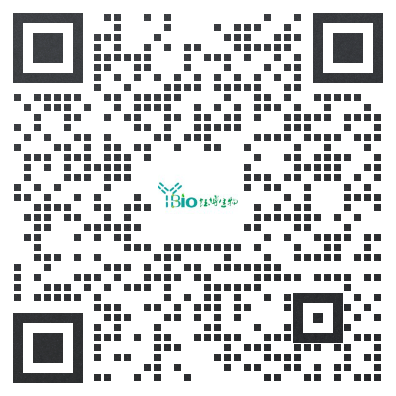
Anti-CCL4抗体
产品名称: Anti-CCL4抗体
英文名称: CCL4
产品编号: YB--2475R
产品价格: null
产品产地: 中国/美国
品牌商标: Ybscience
更新时间: 2023-08-17T10:29:50
使用范围: 科研使用
上海钰博生物科技有限公司
- 联系人 : 陈环环
- 地址 : 上海市沪闵路6088号龙之梦大厦8楼806室
- 邮编 : 200612
- 所在区域 : 上海
- 电话 : 183****2235 点击查看
- 传真 : 点击查看
- 邮箱 : shybio@126.com
- 二维码 : 点击查看
Anti-CCL4抗体
| 产品编号 | YB-2475R |
| 英文名称 | CCL4 |
| 中文名称 | 巨噬细胞炎性蛋白1β抗体 |
| 别 名 | MIP-1 Beta; Macrophage Inflammatory Protein 1 beta; MIP-1 Beta; MIP-1β; Secreted protein G 26; ACT 2; ACT2; AT744.1; CC chemokine ligand 4; CCL4; ccl4l 1; CCL4L1; Chemokine CC Motif Ligand 4; G 26 T lymphocyte secreted protein; HC21; LAG 1; LAG1; Lymphocyte activation gene 1; Lymphocyte activation gene 1 protein; Macrophage inflammatory protein 1 beta; MGC104418; MGC126025; MGC126026; MIP1 beta; MIP1B; MIP1B1; PAT 744; Protein H400; SCYA2; SCYA4; Secreted protein G26; SIS gamma; Small inducible cytokine A4; T cell activation protein 2; CCL4_MOUSE; MIP-1β. |
| 规格价格 | 100ul/1380元 购买 200ul/2200元 购买 大包装/询价 |
| 说 明 书 | 100ul 200ul |
| 研究领域 | 肿瘤 细胞生物 免疫学 转录调节因子 |
| 抗体来源 | Rabbit |
| 克隆类型 | Polyclonal |
| 交叉反应 | Human, Mouse, Rat, |
| 产品应用 | WB=1:500-2000 ELISA=1:500-1000 IHC-P=1:400-800 IHC-F=1:400-800 IF=1:100-500 (石蜡切片需做抗原修复) not yet tested in other applications. optimal dilutions/concentrations should be determined by the end user. |
| 分 子 量 | 7.8kDa |
| 细胞定位 | 分泌型蛋白 |
| 性 状 | Lyophilized or Liquid |
| 浓 度 | 1mg/ml |
| 免 疫 原 | KLH conjugated synthetic peptide derived from mouse CCL4:26-92/92 |
| 亚 型 | IgG |
| 纯化方法 | affinity purified by Protein A |
| 储 存 液 | 0.01M TBS(pH7.4) with 1% BSA, 0.03% Proclin300 and 50% Glycerol. |
| 保存条件 | Store at -20 °C for one year. Avoid repeated freeze/thaw cycles. The lyophilized antibody is stable at room temperature for at least one month and for greater than a year when kept at -20°C. When reconstituted in sterile pH 7.4 0.01M PBS or diluent of antibody the antibody is stable for at least two weeks at 2-4 °C. |
| PubMed | PubMed |
| 产品介绍 | background: MIP1 alpha and MIP1 beta were originally co-purified from medium conditioned by an LPS-stimulated murine macrophage cell line. Human MIP1 beta refers to the products of several independently cloned cDNAs, including Act2, PAT 744, hH400, G26, HIMAP, HC21, and MAD 5a. The predicted protein products of these cDNAs represent variants that are between 94% - 98% identical and these proteins are all approximately 75% homologous to murine MIP1 beta. MIP1 beta also shares approximately 70% amino acid identity with MIP1 alpha. MIP1 proteins are expressed primarily in T cells, B cells, and monocytes after antigen or mitogen stimulation. The MIP1 proteins have chemoattractant and adhesive effects on lymphocytes, with MIP1 alpha and MIP1 beta preferentially attracting CD8+ and CD4+ T cells, respectively. A signal transducing receptor designated the CC chemokine receptor 1 (CC CKR1) with seven transmembrane domains that binds MIP1 alpha, MIP1 beta, MCP1 and RANTES with varying affinities has been isolated. Function: Monokine with inflammatory and chemokinetic properties. Binds to CCR5. One of the major HIV-suppressive factors produced by CD8+ T-cells. Recombinant MIP-1-beta induces a dose-dependent inhibition of different strains of HIV-1, HIV-2, and simian immunodeficiency virus (SIV). The processed form MIP-1-beta(3-69) retains the abilities to induce down-modulation of surface expression of the chemokine receptor CCR5 and to inhibit the CCR5-mediated entry of HIV-1 in T-cells. MIP-1-beta(3-69) is also a ligand for CCR1 and CCR2 isoform B. Subunit: Homodimer and heterodimer of MIP-1-alpha(4-69) and MIP-1-beta(3-69). Subcellular Location: Secreted. Post-translational modifications: N-terminal processed form MIP-1-beta(3-69) is produced by proteolytic cleavage after secretion from peripheral blood lymphocytes. Similarity: Belongs to the intercrine beta (chemokine CC) family. SWISS: P14097 Gene ID: 20303 Database links: Entrez Gene: 6351 Human Entrez Gene: 9560 Human Entrez Gene: 20303 Mouse Entrez Gene: 116637 Rat Omim: 182284 Human Omim: 603782 Human Omim: 610757 Human SwissProt: P13236 Human SwissProt: Q8NHW4 Human SwissProt: P14097 Mouse SwissProt: P50230 Rat Unigene: 655293 Human Unigene: 661942 Human Unigene: 75703 Human Unigene: 37880 Rat Important Note: This product as supplied is intended for research use only, not for use in human, therapeutic or diagnostic applications |
